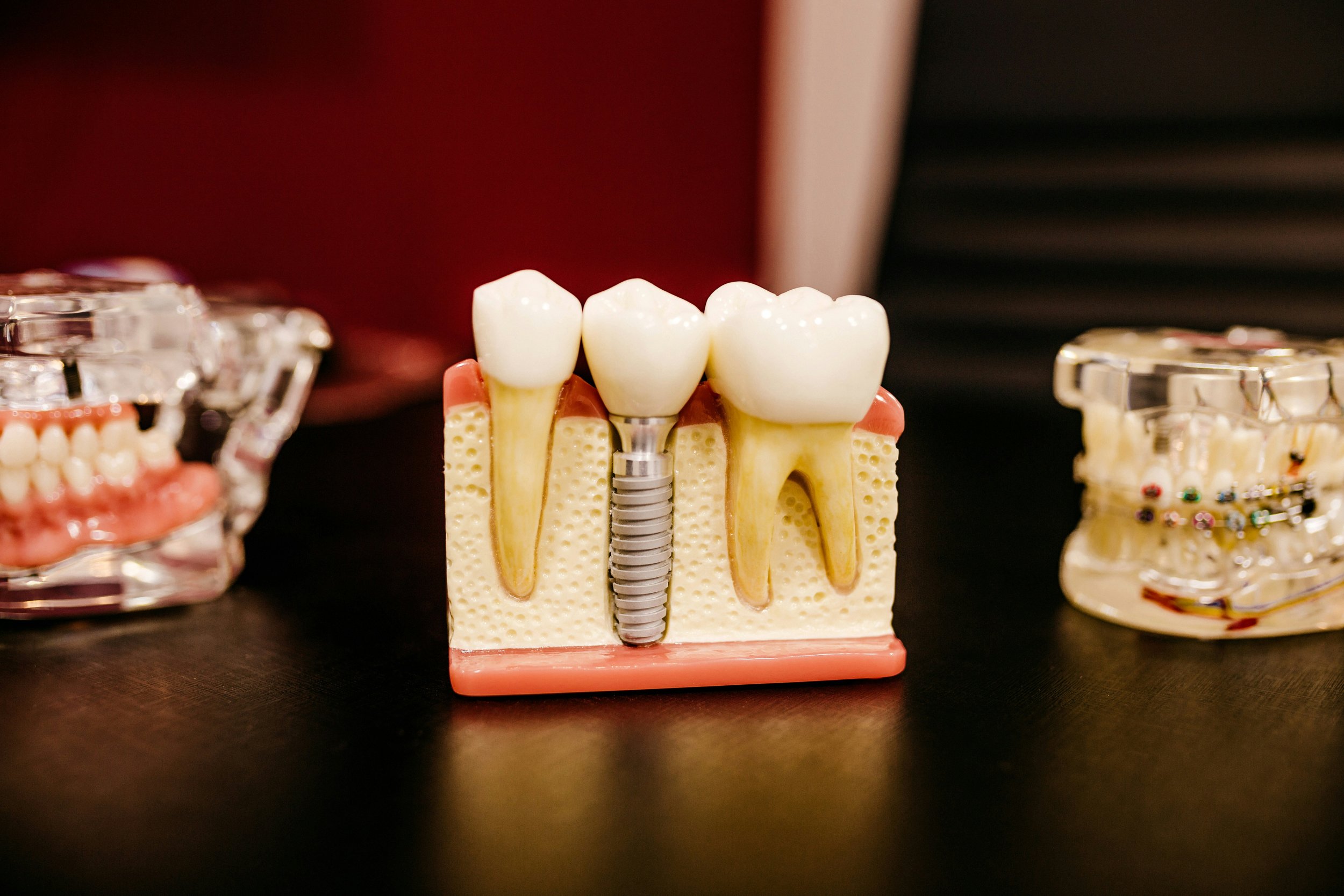Dental Nerve Damage After Wisdom Teeth Removal: Could It Be Medical Negligence?
Every year, thousands of Australians undergo wisdom teeth removal, often under the assumption that it's a routine dental procedure. For most, the recovery is straightforward—some swelling, discomfort, and perhaps a few days off work or study. But for others, something goes wrong.
If you're reading this, you may be one of the people who experienced ongoing pain, numbness, tingling, or difficulty eating or speaking after your procedure. Perhaps you've been told that it's "just part of healing" or that "it should go away eventually"—but weeks or months have passed, and you're still struggling.
Let’s talk about dental nerve damage: what it is, why it happens, how to know if it's negligence, and what you can do about it.
What Is Dental Nerve Damage?
Dental nerve damage after wisdom tooth extraction most commonly affects two nerves:
Inferior alveolar nerve – which runs through your lower jaw and affects the sensation in your lower lip, chin, and teeth.
Lingual nerve – which affects the tongue, particularly the ability to taste and feel.
Symptoms of nerve damage include:
Numbness or a "pins and needles" sensation in your tongue, lip, or chin
Loss of taste
Pain or burning sensations
Difficulty speaking, eating, or drinking
Drooling or biting the inside of your mouth without realising
While some of these symptoms resolve over time, others can become permanent and deeply affect quality of life.
When Is It Just a Risk of Surgery—And When Is It Negligence?
No surgery is completely without risk, and some nerve injuries can happen even with reasonable care. However, not all outcomes are excusable just because a risk was known.
Here are some red flags that may point to medical negligence:
1. Failure to Warn You of the Risk
You should have been clearly informed, in writing and discussion, that nerve injury is a potential complication—particularly if your imaging showed close proximity between the nerve and the tooth roots. If you weren’t warned, this may constitute a failure of informed consent, which is a recognised form of negligence.
2. Inadequate Pre-Operative Imaging
Were you sent for a 3D scan (like a CBCT) before surgery? For patients at risk of nerve damage, this step is often essential. If a dentist skipped imaging or relied on poor-quality scans, and nerve damage occurred, it may point to substandard care.
3. Poor Surgical Technique or Experience
Wisdom teeth close to vital structures should often be handled by an oral surgeon, not a general dentist. If your treating provider didn’t have the skill or experience needed for a complex extraction, and it resulted in permanent injury, this could be a case of negligence.
4. Failure to Recognise or Treat the Injury
Did your dentist dismiss your symptoms as "normal"? Did they fail to refer you to a specialist or delay diagnosis? Time matters with nerve injuries—early intervention can make a difference. Neglecting to act can make the damage worse.
Real People, Real Impact
At our firm, we’ve spoken to clients who:
Struggle to kiss their children because they can’t feel the left side of their lips
Can’t eat on one side of their mouth without biting their cheek
Have chronic burning pain in their tongue that no one warned them was possible
Were told it would "get better in six weeks"—but six years later, nothing has changed
These are not just medical problems. They're emotional, social, and professional injuries too.
So… Do I Have a Claim?
If you’ve suffered lasting nerve damage after wisdom teeth extraction, here are the steps to take:
Request Your Dental Records and Imaging
Ask for your full clinical notes and any radiographs or CBCT scans. You are entitled to them.Get a Second Opinion
Seek an assessment from an oral surgeon who did not perform the initial procedure. A fresh set of eyes can help clarify whether the injury was avoidable.Keep a Symptom Diary
Track your symptoms, how they affect daily life, any treatments you’ve tried, and what you were told by your provider.Talk to a Lawyer Experienced in Dental Negligence
This area of law is highly specific. We regularly assist clients who suffer long-term impacts after substandard dental care, especially in cases involving nerve damage, implant injuries, and failed extractions.
You’re Not Imagining It—and You’re Not Alone
It's hard when you're told that "everything was done properly" but your life has changed in a way that no one prepared you for.
You deserve answers. You deserve support. And if appropriate—you deserve compensation.
Our team is here to help you figure out where you stand. We’ll take the time to review your records, consult experts if needed, and provide clear advice on whether you may have a claim.
Even if you’re unsure, it’s worth having the conversation.
If you're asking Google things like “numb lip after wisdom teeth removal months later” or “can I sue dentist for nerve damage wisdom tooth”, this post is for you. I’m Dr Rosemary Listing. Although this is a blog, not a law firm, I write here to help those suffering nerve injury after extraction understand if they might have a claim—and what to do next.
What Is Dental Nerve Damage (Paresthesia)?
During lower wisdom tooth removal, two nerves—inferior alveolar nerve (jaw, lip, chin area) and lingual nerve (tongue, taste)—are vulnerable to trauma. Injury may occur through crushing, stretching, nicking, or pressure from swelling or hematoma. Animated TeethWikipediaWikipedia
Symptoms include:
Persistent numbness or tingling in lip, chin, tongue, gums
Burning pain or discomfort
Loss of taste or altered sensation
Difficulty eating, speaking, drooling, or accidental biting
Most cases heal in weeks or months. But recovery can take up to two years, and sometimes the damage becomes permanent.
When Is It Medical Negligence?
Suffering nerve injury isn't automatically malpractice. But it may be negligence if:
You weren’t warned clearly about nerve injury risk. Informed consent is legally required.
No proper imaging or risk assessment: If panoramic X‑rays shrank or obscured the nerve path, or CBCT scans weren’t ordered despite close nerve proximity.
Wrong provider or poor technique: Complex extractions should be handled by experienced oral surgeons—not general dentists—especially when nerves lie close.
Delay denying symptoms or referring for treatment: Ignoring signs or delaying expert referral may worsen outcomes and suggest malpractice.
Signs You Might Have a Claim
Persistent symptoms beyond expected recovery window (e.g. beyond 3–6 months)
No mention in your consent form of potential nerve damage
Lack of advanced imaging despite high-risk anatomy
No referral for second opinion or specialist when symptoms appeared
Symptom tracking shows worsening or stagnation rather than gradual improvement
Your First Steps
Request all dental records and imaging, including scans and signed consent forms.
Seek an independent oral surgeon or neurology specialist for diagnosis and likelihood of recovery.
Keep a symptom diary: note onset, progression, daily life impact, losses (sleep, work, eating, speaking).
Talk with a solicitor specialising in dental negligence—some cases result in compensation covering pain, medical costs, lost income, and changes to quality of life.
Why This Matters
When a preventable nerve injury massively alters your life—for weeks, months, or longer—and could have been avoided with proper care, you deserve answers and support. Even if you're unsure whether malpractice occurred, gathering your records and talking to an expert can clarify your situation.
Book a Free Initial Consultation
If you believe your nerve injury may have been preventable, get in touch today. We can help you understand your rights and what options are available to you.
About the Author
Dr Rosemary Listing is a lawyer with a background in healthcare law and medical negligence. She represents clients who have suffered from dental and surgical injuries, advocating for better care and real accountability in Australia’s healthcare system.


